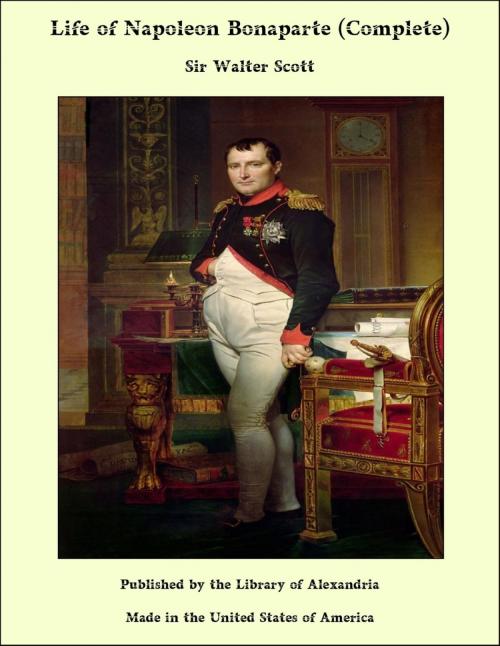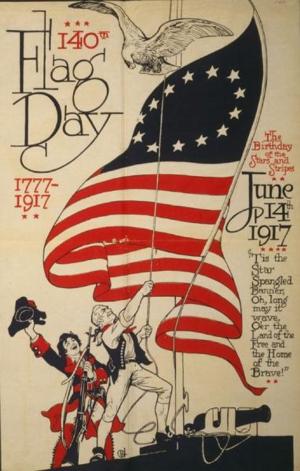Life of Napoleon Bonaparte (Complete)
Nonfiction, Religion & Spirituality, New Age, History, Fiction & Literature| Author: | Sir Walter Scott | ISBN: | 9781465618900 |
| Publisher: | Library of Alexandria | Publication: | March 8, 2015 |
| Imprint: | Language: | English |
| Author: | Sir Walter Scott |
| ISBN: | 9781465618900 |
| Publisher: | Library of Alexandria |
| Publication: | March 8, 2015 |
| Imprint: | |
| Language: | English |
When we look back on past events, however important, it is difficult to recall the precise sensations with which we viewed them in their progress, and to recollect the fears, hopes, doubts, and difficulties, for which Time and the course of Fortune have formed a termination, so different probably from that which we had anticipated. When the rush of the inundation was before our eyes, and in our ears, we were scarce able to remember the state of things before its rage commenced, and when, subsequently, the deluge has subsided within the natural limits of the stream, it is still more difficult to recollect with precision the terrors it inspired when at its height. That which is present possesses such power over our senses and our imagination, that it requires no common effort to recall those sensations which expired with preceding events. Yet, to do this is the peculiar province of history, which will be written and read in vain, unless it can connect with its details an accurate idea of the impression which these produced on men's minds while they were yet in their transit. It is with this view that we attempt to resume the history of France and of Europe, at the conclusion of the American war—a period now only remembered by the more advanced part of the present generation. The peace concluded at Versailles in 1783, was reasonably supposed to augur a long repose to Europe. The high and emulous tone assumed in former times by the rival nations, had been lowered and tamed by recent circumstances. England, under the guidance of a weak, at least a most unlucky administration, had purchased peace at the expense of her North American Empire, and the resignation of supremacy over her colonies; a loss great in itself, but exaggerated in the eyes of the nation, by the rending asunder of the ties of common descent, and exclusive commercial intercourse, and by a sense of the wars waged, and expenses encountered for the protection and advancement of the fair empire which England found herself obliged to surrender. The lustre of the British arms, so brilliant at the Peace of Fontainbleau, had been tarnished, if not extinguished. In spite of the gallant defence of Gibraltar, the general result of the war on land had been unfavourable to her military reputation; and notwithstanding the opportune and splendid victories of Rodney, the coasts of Britain had been insulted, and her fleets compelled to retire into port, while those of her combined enemies rode masters of the channel. The spirit of the country also had been lowered, by the unequal contest which had been sustained, and by the sense that her naval superiority was an object of invidious hatred to united Europe. This had been lately made manifest, by the armed alliance of the northern nations, which, though termed a neutrality, was, in fact, a league made to abate the pretensions of England to maritime supremacy. There are to be added to these disheartening and depressing circumstances, the decay of commerce during the long course of hostilities, with the want of credit and depression of the price of land, which are the usual consequences of a transition from war to peace, ere capital has regained its natural channel. All these things being considered, it appeared the manifest interest of England to husband her exhausted resources, and recruit her diminished wealth, by cultivating peace and tranquillity for a long course of time. William Pitt, never more distinguished than in his financial operations, was engaged in new modelling the revenue of the country, and adding to the return of the taxes, while he diminished their pressure. It could scarcely be supposed that any object of national ambition would have been permitted to disturb him in a task so necessary.
When we look back on past events, however important, it is difficult to recall the precise sensations with which we viewed them in their progress, and to recollect the fears, hopes, doubts, and difficulties, for which Time and the course of Fortune have formed a termination, so different probably from that which we had anticipated. When the rush of the inundation was before our eyes, and in our ears, we were scarce able to remember the state of things before its rage commenced, and when, subsequently, the deluge has subsided within the natural limits of the stream, it is still more difficult to recollect with precision the terrors it inspired when at its height. That which is present possesses such power over our senses and our imagination, that it requires no common effort to recall those sensations which expired with preceding events. Yet, to do this is the peculiar province of history, which will be written and read in vain, unless it can connect with its details an accurate idea of the impression which these produced on men's minds while they were yet in their transit. It is with this view that we attempt to resume the history of France and of Europe, at the conclusion of the American war—a period now only remembered by the more advanced part of the present generation. The peace concluded at Versailles in 1783, was reasonably supposed to augur a long repose to Europe. The high and emulous tone assumed in former times by the rival nations, had been lowered and tamed by recent circumstances. England, under the guidance of a weak, at least a most unlucky administration, had purchased peace at the expense of her North American Empire, and the resignation of supremacy over her colonies; a loss great in itself, but exaggerated in the eyes of the nation, by the rending asunder of the ties of common descent, and exclusive commercial intercourse, and by a sense of the wars waged, and expenses encountered for the protection and advancement of the fair empire which England found herself obliged to surrender. The lustre of the British arms, so brilliant at the Peace of Fontainbleau, had been tarnished, if not extinguished. In spite of the gallant defence of Gibraltar, the general result of the war on land had been unfavourable to her military reputation; and notwithstanding the opportune and splendid victories of Rodney, the coasts of Britain had been insulted, and her fleets compelled to retire into port, while those of her combined enemies rode masters of the channel. The spirit of the country also had been lowered, by the unequal contest which had been sustained, and by the sense that her naval superiority was an object of invidious hatred to united Europe. This had been lately made manifest, by the armed alliance of the northern nations, which, though termed a neutrality, was, in fact, a league made to abate the pretensions of England to maritime supremacy. There are to be added to these disheartening and depressing circumstances, the decay of commerce during the long course of hostilities, with the want of credit and depression of the price of land, which are the usual consequences of a transition from war to peace, ere capital has regained its natural channel. All these things being considered, it appeared the manifest interest of England to husband her exhausted resources, and recruit her diminished wealth, by cultivating peace and tranquillity for a long course of time. William Pitt, never more distinguished than in his financial operations, was engaged in new modelling the revenue of the country, and adding to the return of the taxes, while he diminished their pressure. It could scarcely be supposed that any object of national ambition would have been permitted to disturb him in a task so necessary.















